 W
WA science festival is a festival that showcases science and technology with the same freshness and flair that would be expected from an arts or music festival and primarily targets the general public. These public engagement events can be varied, including lectures, exhibitions, workshops, live demonstrations of experiments, guided tours, and panel discussions. There may also be events linking science to the arts or history, such as plays, dramatised readings, and musical productions. The core content is that of science and technology, but the style comes from the world of the arts.
 W
WArtBots: The Robot Talent Show is an international robot talent show held in New York City and other cities. It is sponsored by a variety of arts organizations, produced by an army of volunteers, and is directed and curated by dorkbot founder, and teacher Douglas Repetto.
BergamoScienza is a science festival held annually in Bergamo, Italy. Established in 2003, its purpose is to promote the popularization of science. The festival consists of lectures, exhibitions, interactive workshops, as well as meetings with scientists. The event BergamoScienza is organized by the Non-profit organization BergamoScienza, whose founders were a group of friends. 24 Nobel Prize laureates have participated to BergamoScienza since 2003, among them John F. Nash, Kari Mullis, Paul Crutzen, Roald Hoffman, Peter Agre, Aaron Ciechanover, Martin Chalfie, Eric Kandel, Barry Marshall, R. Timothy Hunt, Linda Buck, Bruce Beutler, James Dewey Watson. Among innovative personalities, Jimmy Wales Wikipedia founder attended the conference.
 W
WBluedot is a music, science and culture event held annually in July since 2016 at Jodrell Bank Observatory in Cheshire, England, combining music, live science experiments, expert talks and immersive artworks.
 W
WThe Cambridge Science Festival is a series of events typically held annually in March in Cambridge, England and is the United Kingdom's largest free science festival. The festival attracts more than 30,000 visitors to over 250 events. University researchers and students open their lecture halls and laboratories to the general public, and hold Talks, Exhibitions and Demonstrations, mostly free of charge.
 W
WCampus Party (CP) is a conference and hackathon.
 W
WA conversazione is a "social gathering [predominantly] held by [a] learned or art society" for conversation and discussion, especially about the arts, literature, medicine, and science.It would not be easy to devise a happier way [than the conversazione] of bringing novelties at once under practical criticism—of making the outliers of science acquainted with the centre, of enabling investigators to compare operations and discuss facts and speculations, and of giving occasion for renewal of intercourse and removal of misunderstandings. …[The] tangible gain to science [from the coversazione is that] inventors and experimentalists … hear [directly] what contemporaries say of their schemes and experiments, and much can be said and done with advantage amid the free talk of a general gathering which could not be permitted in the formal meeting of a scientific society.
 W
WCopernicus Festival is a science festival held every May in Kraków, Poland. It was founded in 2014 and provides lectures, discussions, workshops, film screenings and exhibitions focusing on neuroscience, evolutionary biology, physics, law, and philosophy at various venues in the city. The event is organized by the Copernicus Center and the Tygodnik Powszechny Foundation.
 W
WEarth Sciences Week is a yearly event run by the American Geosciences Institute (AGI) to promote understanding of Earth science and stewardship of the planet. It is typically held in the second full week of October.
 W
WThe Festival della Scienza is an annual science festival held in Genoa, Italy. It was launched in 2003 combining hundreds of different initiatives and events, designed to fulfill and stimulate the interest of visitors of all ages and all levels of knowledge. Modulation in diverse formats and original languages is always one of features of the Festival. The aim of the array of interdisciplinary proposals is to overcome the traditional opposition between scientific and humanistic culture. Events include scientific exhibitions, workshops, interactive educational experiences, photography and "art-science" exhibitions, conferences, round tables, performances, music and films.
 W
WGeek Picnic is the largest European open air festival dedicated to popular science, modern technology, science and art.
 W
WIntegration is the annual techno-cultural fest of Indian Statistical Institute, Kolkata usually held during last three weekends of January each year. It is one of the biggest campus events in Kolkata, and attracts participation from all over the world.
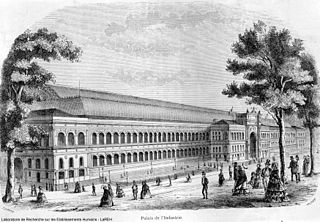 W
WThe first International Exposition of Electricity in Paris ran from August 15, 1881 through to November 15, 1881 at the Palais de l'Industrie on the Champs-Élysées. It served to display the advances in electrical technology since the small electrical display at the 1878 Universal Exposition. Exhibitors came from the United Kingdom, United States, Germany, Italy and the Netherlands, as well as from France. As part of the exhibition, the first International Congress of Electricians presented numerous scientific and technical papers, including definitions of the standard practical units volt, ohm and ampere.
 W
WNational Fossil Day was established in the United States by the National Park Service during 2010 as a celebration and partnership to promote the scientific and educational values of fossils. The first annual National Fossil Day was hosted on October 13, 2010, as a fossil-focused day during Earth Science Week. The National Park Service, the American Geosciences Institute, and more than 385 partners, including museums, institutions, science and teacher organizations, agencies, fossil sites, amateur fossil groups and other entities, joined together in a partnership to educate the public about fossils, the science of paleontology and America's Paleontological Heritage. There are National Fossil Day partners in all 50 states providing opportunities for educational outreach and hosting hundreds of fossil-themed activities at the local level.
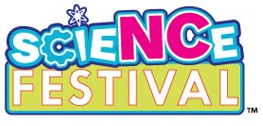 W
WThe North Carolina Science Festival (NCSF) is a month-long, yearly celebration encompassing hundreds of events throughout the state of North Carolina. The festival is organized by Morehead Planetarium and Science Center on the University of North Carolina at Chapel Hill campus with the goal of highlighting the educational, cultural and economic impact of science in the state. NCSF events include hands-on activities, talks, lab tours, exhibits and performances for all ages. The event has grown into the largest science festival in the world.
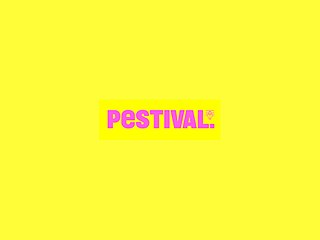 W
WPestival is an international arts festival dedicated to ‘the art of being an insect'. Pestival won the 2010 Observer Ethical Award in Conservation, and had a three year residency at ZSL London Zoo.
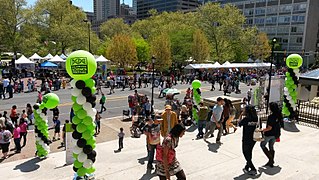 W
WThe Philadelphia Science Festival is an annual free science festival held in Philadelphia. The festival is organized and managed by the Franklin Institute.
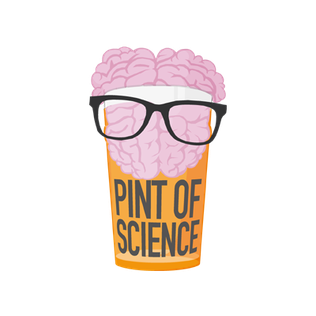 W
WPint of Science is an annual science festival that aims to communicate contemporary scientific developments to the public by bringing scientists to pubs, cafés and other public places to share their research and findings.
 W
WScience on Tap is the social-cultural initiative of Yivsam Azgad, head of the Media Department and art curator of the Weizmann Institute of Science in Rehovot, Israel. The project began in 2010, under the title Beer, Science, and Fun, as a gesture to the city of Rehovot on its 120th anniversary. In this framework, some 35 scientists and graduate students went to bars and pubs in Rehovot to talk with the patrons about open questions in science and the newest advances on the forefront of global science. On the same night, research students went to the city center and led a “science comics” session for children in which they created their own science comics, inspired by the Nano Comics series put out by the Weizmann Institute of Science and edited by Yivsam Azgad. This initiative was highly successful and was covered by the media in Israel and the world. The scientists, artists, and politicians posed a challenge to the organizers: To reproduce this success in Tel Aviv. In response to the challenge, Azgad decided, with the support of the Weizmann Institute of Science president, Prof. Daniel Zajfman, to organize the event in Tel Aviv under a new name: Science on Tap. This event, preceded by a creative ad campaign, included the participation of 70 scientists from the Weizmann Institute of Science speaking in different bars, all at the same time, with free entrance for all. The wild success of this venture led to a significant change in the entertainment culture in Tel Aviv in particular and in Israel in general. Dozens of similar projects, all with the “on Tap” format, were introduced. Similar events have also been put on in London, Boston, Panama City and other places around the world. Science on Tap is an annual event in Tel Aviv and is conducted jointly by the Weizmann Institute of Science, Time Out Tel Aviv magazine, and often the Tel Aviv municipality. It remains the largest event of its kind.
 W
WThe Science Picnic is Europe's largest outdoor science-popularization event organized jointly by Polish Radio and the Copernicus Science Centre. It has been held every year since 1997. A wide range of research fields are represented at the Picnic, including the hard, natural, and social sciences together with the humanities. Research and teaching institutions from Poland and abroad reveal here behind-the-scenes aspects of their work and present science in ways accessible to visitors of various ages, using hands-on experiments and interactive exhibits.
 W
WScience Rendezvous is the largest science festival in Canada; its inaugural event happened across the Greater Toronto Area (GTA) on Saturday, May 10, 2008 with the support from the University of Toronto, Ryerson University, York University and the Ontario Tech U. By 2011 the event had gone national, with participation from most major research institutes, universities, science promotion groups and the public from all across Canada - from Vancouver to St. John's to Inuvik. Science Rendezvous is a registered not-for-profit organization dedicated to making great science accessible to the public. In 2019, there were more than 300 festival events in 30 cities across Canada.
 W
WScience Week Ireland is an annual week-long event in Ireland each November, celebrating science in our everyday lives. Science Week is an initiative of Science Foundation Ireland (SFI) It is the largest science festival in the country, engaging tens of thousands of members of the general public in workshops, science shows, talks, laboratory demonstrations, science walks and other science-related events. Science Week is a collaboration of events involving industry, colleges, schools, libraries, teachers, researchers and students throughout Ireland.
 W
WTeknofest, short for Teknofest Aerospace and Technology Festival, is the first and only aviation, aerospace, and technology festival of Turkey initially held at Istanbul New Airport in September 2018 by the Turkish Technology Team Foundation (T3) in collaboration with private companies, ministries, and academic institutions. The primary goals of the festival are to raise public awareness about technology in society and to draw attention to the importance of national production.
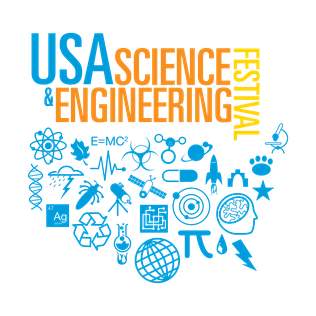 W
WThe USA Science & Engineering Festival is a bi-annual science festival held in Washington, D.C. Founded in 2010 by Larry Bock, the festival is the largest celebration of science, technology, engineering, and mathematics (STEM) disciplines in the United States. The inaugural event was held on October 10–24, 2010, the second festival was April 27–29, 2012, the third festival was April 24–27, 2014, the fourth festival was April 16–17, 2016, and the fifth festival was April 7–8, 2018.
 W
WThe Virginia Science Festival (VSF) is a multi-week event encompassing events across 11 sites featuring many disciplines throughout Virginia. The festival was inaugurated in 2014, and is organized by Virginia Tech and the Science Museum of Western Virginia with the goal of highlighting the educational, cultural, and economic impact of science in the state. NCSF events include hands-on activities, talks, and lab tours.
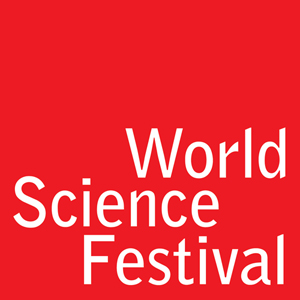 W
WThe World Science Festival is an annual science festival produced by the World Science Foundation, a 501(c)(3) non-profit organization headquartered in New York City. There is also an Asia-Pacific event, held in Brisbane, Australia.
 W
WThe 2008 World Science Festival was a science festival held in New York City. The festival consisted mainly of panel discussions and on-stage conversations, accompanied by multimedia presentations. A youth and family program presented topics such as sports from a scientific perspective and included an extensive street fair. A cultural program led by actor and writer Alan Alda focused on art inspired by science. The festival also included a World Science Summit, a meeting of high-level participants from the worlds of science, politics, administration, and business.